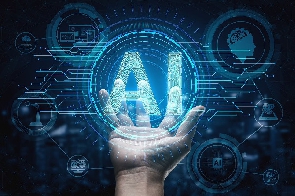The power of artificial intelligence (AI) is one of the most talked-about topics in the business world today. With its ability to transform entire industries and create new opportunities, AI has the potential to revolutionize the way businesses operate and succeed in Africa and on the global stage.
The AI boom is being fueled by the growing need for new technologies to process and deduce patterns with speed. While automation and AI are altering many facets of industry, some business owners are concerned about the effects on their company's future.
The term 'artificial intelligence' refers to a broad field of computer science, engineering and science that aims to create intelligent machines. The key word here is 'intelligence'. An intelligent machine will be able to learn from its surroundings, solve problems and make decisions based on what it has learned.
As the African continent rapidly transforms, artificial intelligence (AI) is unleashing powerful opportunities for businesses to unlock their potential. And as the world around us continues to become increasingly digitalized and automated, it is becoming clear that artificial intelligence (AI) is here to make a significant impact on the way business is conducted.
The idea of an intelligent machine has been around since the beginning of technology as we know it. It was in the 1950s when researchers first started designing computers which could perform simple tasks like arithmetic calculations or playing chess. By the 1960s, scientists had created computers that could play checkers and even beat human players at their own game!
Fast forward several decades and we have reached a point where machines can perform tasks that require human intelligence such as driving cars or playing video games. But these are just two examples of how AI has evolved over time. In fact, today's AI systems are so powerful they can outperform humans in many areas including translation and translation services; photo editing etc.
The effects of artificial intelligence on the future of business operations are as yet unclear, but in many industries we can expect to see a sharp rise in productivity, efficiency and competitiveness.
In the past year or so, we have seen an increasing number of companies embrace this trend and release their own artificial intelligence products. From Google's DeepMind, which has been teaching itself to play Atari games; to Facebook's M, which is able to recognise emotions in photographs; and Amazon's Alexa assistant, which can control your smart home devices. Businesses can employ AI to improve their service offerings and product delivery, these businesses are reaping results in;
Automation
One of the most valuable advantages of AI. By automating processes like customer service, order fulfilment, and sales, businesses can save time and money, as well as ensure accuracy in their operations. Automation also helps businesses increase their productivity, allowing them to focus on more meaningful tasks.
Data Analysis & security
Businesses can quickly interpret and analyse data to make informed decisions. A strategic Artificial intelligence adoption can help detect and respond to security threats quickly, allowing businesses to remain safe and secure.
Prediction:
Predicting future trends and customer demands is a key feature of modern businesses. This allows them to generate key and valuable insights while improving customer experience. AI’s ability to process and analyze data quickly and accurately allows businesses to identify patterns and trends and make more informed decisions.
These technologies may be years away from commercialisation but they already have huge implications for business operations and present certain challenges. Businesses need to consider the ethical implications of using AI and be aware of the potential impact of AI on the environment and privacy. Businesses should also be mindful of the skills gap in Africa, ensuring they have the right infrastructure, talent and understanding to successfully and strategically implement AI.
AI has enormous potential to change the way we live, work, learn and interact with each other. As computers grow steadily more intelligent and independent, it is vital to consider the future implications of artificial intelligence. What happens when we have machines that can do everything better than humans? While the business world stands on the cutting edge of AI development, public understanding and perception of AI is still relatively new. Slowly but surely though, we are heading towards a future powered by highly intelligent machines.
I am excited to see how startups in Africa will use it to their advantage!
Opinions of Wednesday, 15 February 2023
Columnist: Klenam Koku Fiadzoe















